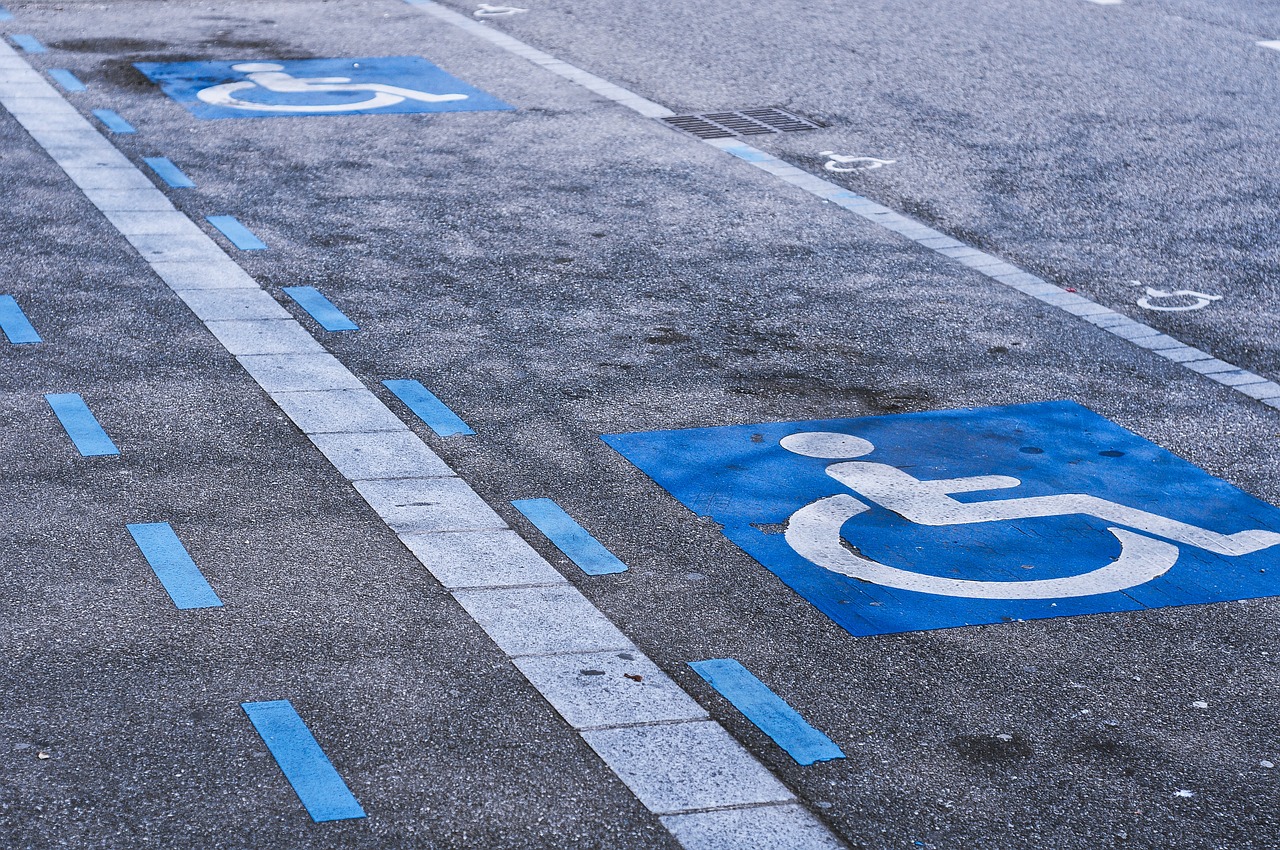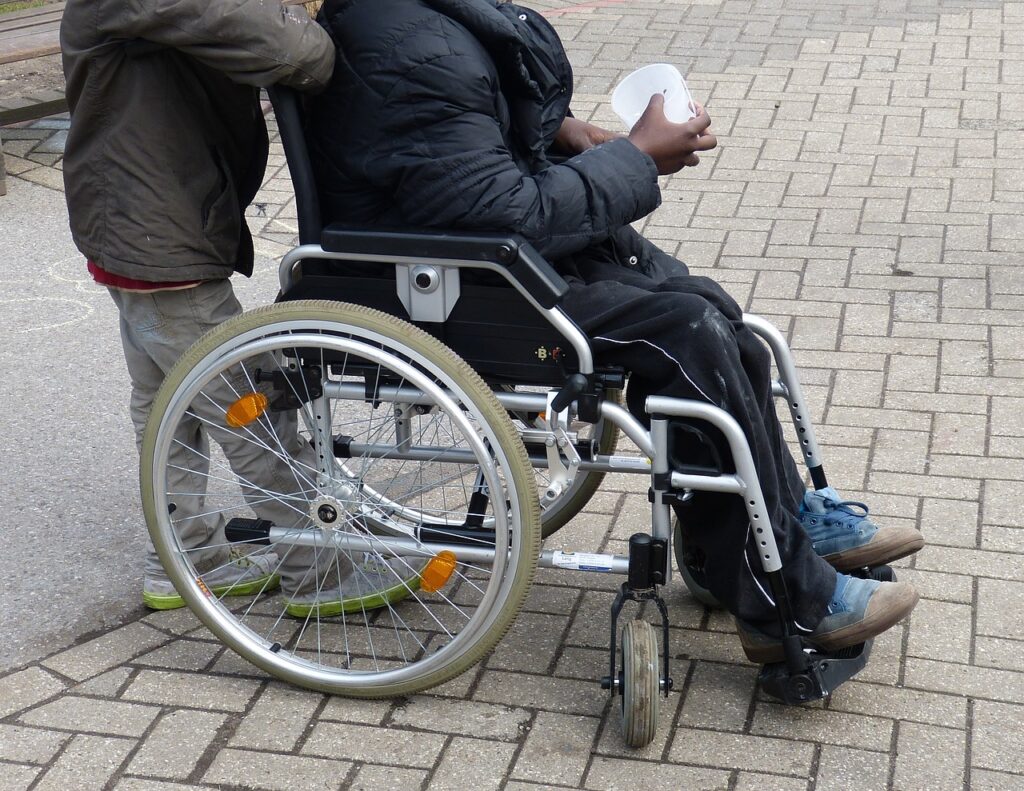Handicap Parking Permits: Temporary vs. Permanent – Which Is Right for You?

Handicap parking permits play a crucial role in ensuring that individuals with disabilities have equitable access to parking spaces and public facilities. These permits come in two primary categories: temporary and permanent. Understanding the differences between them and choosing the right one is essential to meet your specific needs and circumstances. In this article, we’ll explore the distinctions between temporary and permanent handicap parking permits, eligibility criteria, and the benefits associated with each, as well as the renewal process for permanent disability parking placards.
Temporary vs. Permanent Handicap Parking Permits
The choice between a temporary and a permanent handicap parking permit depends on the nature and duration of your disability. Let’s explore the key differences:
Temporary Disability Parking Placard:
- Criteria: Temporary disability parking permits are issued to individuals with temporary disabilities that affect their mobility. These disabilities may result from injuries, medical conditions, or surgeries that limit their ability to walk or move. The duration of the temporary permit varies but is typically issued for a limited period, such as six months to a year.
- Eligibility: To qualify for a temporary disability parking placard, you must provide medical documentation from a healthcare professional that specifies your condition, the expected duration of the disability, and the need for accessible parking during that period.
- Benefits: Temporary disability parking permits provide individuals with the convenience of accessible parking spaces while they recover from their temporary mobility impairment. This can significantly improve their quality of life and reduce physical exertion during the recovery process.
Permanent Disability Parking Permit:
- Criteria: Permanent disability parking permits are intended for individuals with long-term or permanent mobility impairments. These disabilities may be due to congenital conditions, chronic illnesses, or permanent injuries that affect mobility.
- Eligibility: Eligibility for a permanent disability parking permit typically requires certification from a licensed medical professional, such as a physician or an orthopedic specialist. The documentation should confirm the permanent nature of the disability and the need for accessible parking.
- Benefits: Permanent disability parking permits offer individuals with lasting mobility impairments the opportunity to access accessible parking spaces throughout their lives. These permits grant the freedom to park conveniently and safely, providing access to essential services and activities.
Choosing the Right Handicap Parking Permit
The decision to choose a temporary or permanent handicap parking permit hinges on the duration and permanence of your disability. It is essential to consult with a healthcare professional to determine the most appropriate option.
- Temporary Permit: If your disability is expected to improve within a specific timeframe, a temporary permit may be the right choice. This option provides the convenience of accessible parking during your recovery period, ensuring that you can access facilities and services without physical strain.
- Permanent Permit: For individuals with disabilities that are expected to last indefinitely or for a lifetime, a permanent disability parking permit is the appropriate choice. It allows consistent access to accessible parking spaces, ensuring that you can live a more inclusive and independent life.

Renewing a Permanent Disability Parking Placard
If you possess a permanent disability parking permit, it’s crucial to be aware of the renewal process. While the disability may be permanent, the placard itself requires periodic renewal. The renewal frequency varies by state, but it typically ranges from two to five years.
To renew your permanent disability parking placard, follow these steps:
- Check the Expiration Date: Make a note of the expiration date on your current placard. This information will help you plan for the renewal process.
- Gather Required Documentation: Visit your healthcare provider to obtain the necessary medical documentation to support your renewal application. This documentation should confirm that your disability remains permanent and requires accessible parking.
- Contact Your Local DMV or DOT: Reach out to your state’s Department of Motor Vehicles (DMV) or Department of Transportation (DOT) to inquire about the specific renewal process in your jurisdiction. Each state may have slightly different requirements and procedures for renewal.
- Complete the Application: Fill out the renewal application form, which is typically available on the DMV or DOT website. Be prepared to provide your medical documentation, your current placard information, and any other required details.
- Submit the Application: Send your completed application, along with the supporting medical documentation and any required fees, to the appropriate agency. Be sure to follow the submission instructions closely to ensure your renewal is processed promptly.
- Receive Your Renewed Placard: Once your renewal is approved, you will receive a new permanent disability parking placard. This renewed placard will typically be valid for another predetermined period, allowing you to continue accessing accessible parking spaces.
It’s important to stay proactive and plan your renewal well in advance of the placard’s expiration date to ensure uninterrupted access to accessible parking. Remember that renewing your permanent disability parking placard is not just a legal requirement; it’s a practical necessity for maintaining accessibility and independence in your daily life.
***
The choice between a temporary and permanent handicap parking permit depends on the nature and duration of your disability. Both types of permits provide essential benefits, but it’s crucial to select the one that aligns with your specific needs. Renewing a permanent disability parking placard is a straightforward process that ensures continued accessibility for individuals with lasting mobility impairments. By making the right choice and staying informed about the renewal process, you can enjoy the benefits of accessible parking while maintaining compliance with relevant regulations.
Need more information on disabled parking in the US? From handicap parking enforcement in Nevada to handicap parking signage requirements in Connecticut, we offer a useful bank of detailed topics on the Dr Handicap blog. Check it out today!
Featured image by Grégory ROOSE from Pixabay.